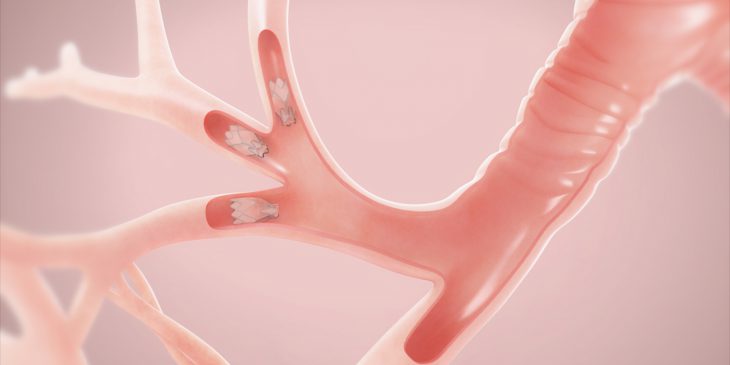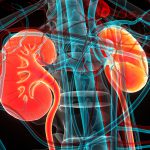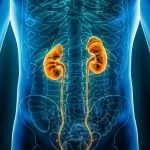While Dennis Phibbs was waiting to hear if he was a match to donate a life-saving kidney to his son, he received an unexpected call.
After examining tests and screenings, doctors told him he was a perfect match to be a living donor, but also gave him some bad news: He had a severe form of emphysema, a subtype of chronic obstructive pulmonary disease (COPD).
Emphysema patients have a very poor quality of life, and for Phibbs, this was no different. His diagnosis made it challenging to walk from his living room to kitchen without sitting down for a break, and it took a toll on spending time with his family.
“My grandchildren would come over and ask me to take them to Dairy Queen across the street and I would have to drive,” Phibbs said. “I was so embarrassed, but I couldn’t walk.”
He is one of 11 million Americans diagnosed with the disease, which is primarily caused by smoking. The third leading cause of death in the U.S., over time COPD can evolve to where patients struggle to breathe and are limited in physical activity.
Before seeking care at UPMC, experts told Phibbs there wasn’t much they could do, his options were either a painful surgery or a lung transplant.
With the help of his wife, he decided to book an appointment with pulmonologist Dr. James Marcin at UPMC Horizon for a second opinion. Marcin gave him a third option – he could participate in a new, minimally-invasive treatment for emphysema using Zephyr Valves, tiny devices placed in the lungs to block off the more diseased areas so healthier areas could expand and take in more air.
This is part of a national study under investigation by Dr. Frank Sciurba, director of the Emphysema/COPD Research Center at UPMC and the lead study investigator at the University of Pittsburgh School of Medicine. Results recently published in the American Journal of Respiratory and Critical Care Medicine have proven this treatment to be promising. Patients who received the Zephyr Valves were able, at one-year following treatment, to walk further with less shortness of breath than patients treated with medication alone.
“Pitt was one of the top recruiting sites for this study, which showed that the Zephyr Valve treatment can significantly improve breathing, exercise capacity and quality of life for these patients,” Sciurba said. “The fact that Zephyr Valves are designed to be a long-term solution, rather than adding on additional medications, is a positive step in emphysema treatment.”
Like many other patients who receive the treatment, Phibbs now has far less limitations due to emphysema. He now spends quality time with his grandchildren and wife doing the activities they love.
“Just knowing I can walk to the car and walk across the street to Dairy Queen is the best feeling,” Phibbs said. “I have Dr. Sciurba to thank. If this hadn’t happened, I’m not sure I would be alive today.









